Best Overall Trail Riding Shoe
Shimano ME7
Weight (per shoe): 451g (EU size 44) | Closure: Speed laces plus reverse ratchet strap
REASONS TO BUY
Great power transfer
Relatively lightweight
Quick and easy closure system
Great off the bike performance
REASONS TO AVOID
No half sizes
Possibly polarizing looks
Moderately expensive
We tested the Shimano ME7 years ago, and it has been updated a couple of times since then. The primary changes have been aesthetic, and this uniquely styled shoe retains all of the performance characteristics we loved about the original. The carbon composite sole provides excellent power transfer for any situation short of an XC race, and the outsole makes very positive contact with the pedals for added lateral stability. Despite its stiffness, the sole flexes just enough through the toe to allow for great walkability, and the lugged Michelin rubber sole grips effectively and doesn’t clog up with mud. The microfiber uppers conform to the feet and feature reinforcement at the toe and heel for protection. Despite looking like they are warm on the feet, they are well-ventilated, and a neoprene ankle gasket helps to keep dirt and rocks out of your shoes. The closure consists of speed laces covered with a velcro flap and a reverse ratchet strap that is not only quick and easy to use but works well to secure your feet in the shoes. They are also relatively lightweight at just 415 grams per shoe in an EU size 44.
Despite how much we love the Shimano ME7, we admit the looks might be a little polarizing. The unique styling may not be for everyone. Also, they’re only available in full EU sizes, so folks between sizes may not be able to get a perfect fit. At their retail price, these shoes are also a bit expensive. Aside from these gripes, we feel this versatile shoe is one of the best available on the market. But if you prefer the look of a more casual shoe, we dig the Specialized 2FO Roost Clip, which is available in half sizes.
Read more: Shimano ME7 review
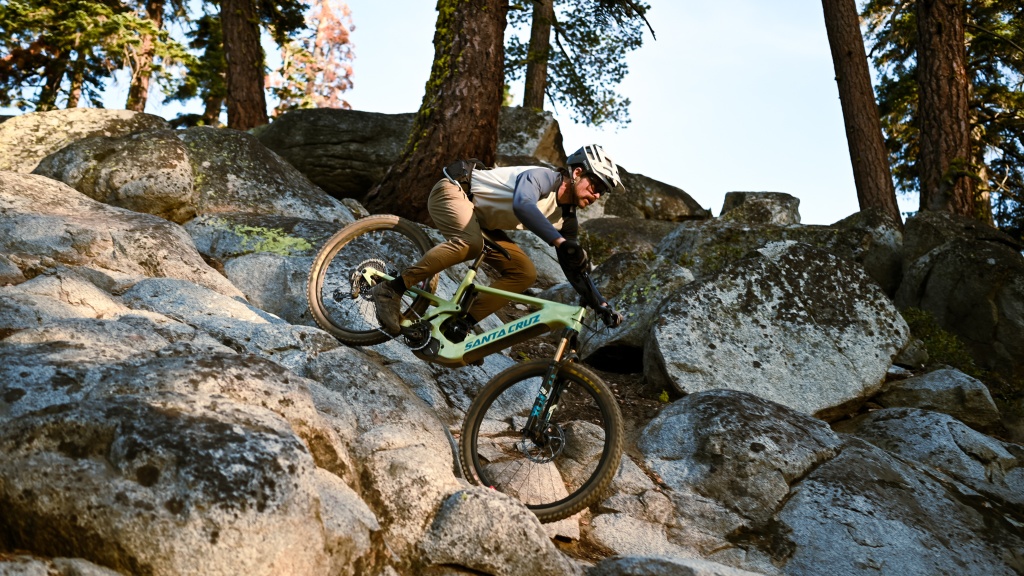
The Shimano ME7 offers fantastic energy transmission, they’re light, and they’re easy to tighten.
Credit: Abriah Wofford
Best Overall Cross Country Shoe
Giro Empire VR90
Weight (per shoe): 388g (size 45) | Closure: Laces
REASONS TO BUY
Lightweight
Stiff carbon soles
Lugged Vibram rubber outsole
Very comfortable
Customizable insoles
REASONS TO AVOID
Expensive
No on-the-fly adjustments
Minimal foot protection
The Giro Empire VR90 took high honors in our tests and is our favorite option for XC riding and racing with a combination of outstanding power transfer, incredible comfort, and surprising durability in a lightweight package. The Empire VR90 is one of the most comfortable cross-country shoes we’ve ever tested, with a supple synthetic upper that fits like a glove and customizable insoles for a personalized fit. It was also among the lightest shoes in our test, which truly makes a difference for extended days in the saddle or out on the racecourse. The Easton EC90 carbon sole is uncompromisingly stiff, providing excellent pedaling efficiency and making the most of your effort. We feel these are a very versatile option as well, and they can easily double as a gravel grinding or road-riding shoe.
Unfortunately, the Empire VR90 didn’t take top honors for its traction and walkability. That said, a very slight amount of flex in the toe coupled with the grippy Vibram rubber outsole proved capable enough off the bike, especially considering the weight and sole stiffness. We were also surprised by the impressive durability, showing almost no signs of wear after being smashed with rocks, scraped on stumps, and abused for weeks on end. They’re far from inexpensive, but we feel the Giro Empire VR90 is an incredible shoe worthy of your attention. However, if you’re shopping on a budget and value traction and walkability above all else, you might like to take a look at the Giro Gauge.
Read more: Giro Empire VR90 review
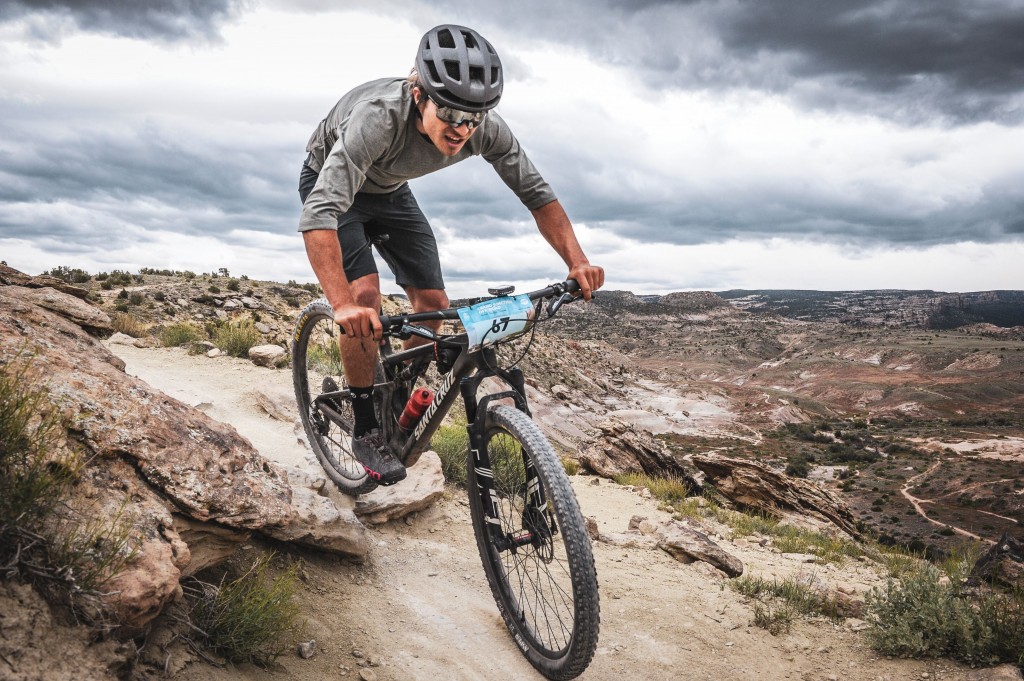
If you want a model that offers stiff Vibram soles with minimal weight, check out the Giro Empire VR90.
Best Bang for Your Buck All-Mountain/Trail Shoe
Specialized 2FO Roost Clip
Weight (per shoe): 375g (size 43.5) | Closure: Laces
REASONS TO BUY
Casual style
Good power transfer
Lightweight
Reasonable price
REASONS TO AVOID
Roomy fit in the forefoot
Not the best lateral stability
The Specialized 2FO Roost Clip may be one of the least expensive shoes in our test, but that didn’t stop them from becoming a tester favorite. These lace-up shoes have a casual style that doesn’t scream “mountain bike shoe,” yet we feel they are a great option for trail and all-mountain riders. They look like they should be heavy, but they are actually one of the lightest shoes we tested at just 375 grams per shoe in a size 43.5 EU. They aren’t the stiffest shoes in the world, but we never felt that they weren’t stiff enough for their intended use. With full coverage SlipNot FG rubber soles and a slight amount of flex through the toe and heel, they are easy to walk in with great traction on most surfaces. They’re quite comfortable, with Body Geometry footbeds, an Airmesh tongue, cushioned EVA midsole, and a rubber toe bumper for protection. Our test pair has also proven to be fairly durable, and they look nearly new despite weeks of heavy use.
Our main complaint with the 2FO Roost Clip regards the fit of the forefoot. It’s definitely a little roomy, and we found it challenging to get a precise fit toward the front of the shoe. Our inability to get a snug fit in the forefoot led to a feeling of slightly reduced lateral stability. Therefore, we’d recommend these shoes for riders with average to slightly above average width feet. Beyond that, we were impressed with these affordable shoes and feel they are a great option for most riders. For a tighter fit, Giro Empire VR90 has comfortable uppers that conform to your foot.
Read more: Specialized 2FO Roost Clip review
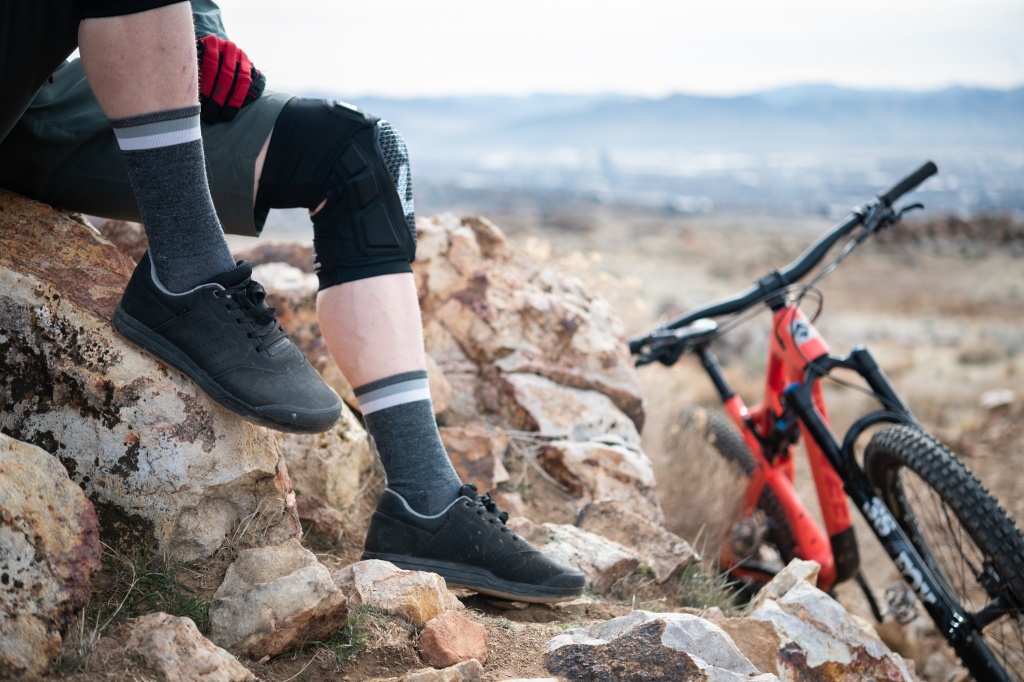
If you’re looking for a street shoe look with performance on par with top-tier models, the 2FO Roost Clip is the way to go.
Credit: Laura Casner
Best Bang for the Buck Cross Country Shoe
Scott MTB Team Boa
Weight (per shoe): 359g (size 44) | Closure: Boa dial plus Velcro strap
REASONS TO BUY
Comfortable
Superb power transfer
Secure closures
Many features
REASONS TO AVOID
Less foot protection
Not the most durable
Are you looking for an affordable XC-style mountain bike shoe with comfort, features, and performance that rivals the best in the test? The Scott MTB Team Boa is a great option for the cross-country or light-duty trail rider on a budget. This stiff-soled shoe is one of the lightest we’ve tested, plus they provide excellent, efficient transfer of power to the pedals. They are also impressively comfortable, with a performance fit, supple synthetic uppers, and a Boa closure that wraps the foot snugly and securely. While they are less expensive, the Scott MTB Team Boa is feature-packed with a thoughtful design in a lower mid-price package.
If you’re considering the Scott MTB Team Boa, you should know that it isn’t a carbon copy of a high-end XC shoe. Their stiffness isn’t entirely on par due to a lack of a carbon shank, although they are pretty close. Due to their stiff soles and lugged tread, they also aren’t the best option for those who may encounter frequent hike-a-bikes. They also offer very limited foot protection, so those riding in especially rugged terrain may want to check out the Ride Concepts Tallac Clip, which are rugged shoes suited for riders who need footwear that can take some abuse season after season.
Read more: Scott MTB Team Boa review
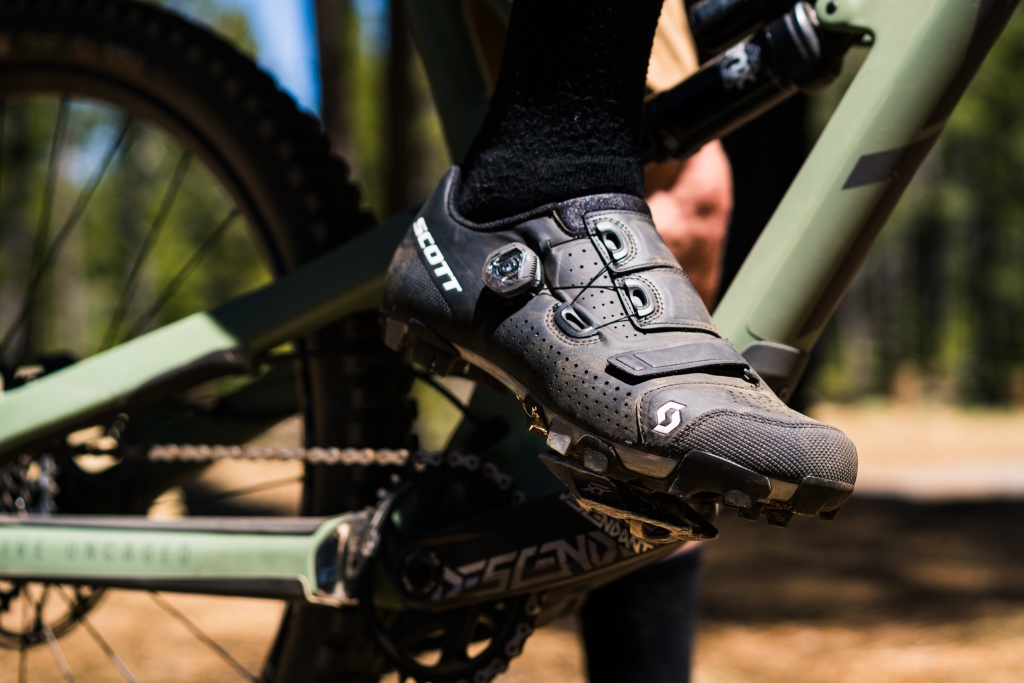
The Scott MTB Team Boa is a cinch to tighten, offers features galore, and won’t break your heart at checkout.
Credit: Jason Peters
Best Downhill Shoe
Fox Union BOA
Weight (per shoe): 458g (size 11) | Closure: BOA Li2
REASONS TO BUY
Excellent power transfer
Reasonable weight
Enormous cleat channel
Fairly versatile
REASONS TO AVOID
No medial ankle protection
BOA system might be a turn-off for some
The Fox Union BOA is a gravity-specific clipless mountain bike shoe that is marketed for downhill and enduro riders. That being said, we find it to be surprisingly versatile thanks to its reasonable weight. At 458 grams (size 11), it is lighter than many of the gravity-focused options. Power transfer is excellent thanks to a lightweight nylon shank molded into the shoe. In addition, the Union BOA features an incredibly long cleat channel allowing users to fine-tune cleat placement. On the descent, the shoes are stiff and protective enough to mute out the trail surface without beating up your feet. The welded toe and heel provide protection and durability for when things go awry. Whether you are into enduro or downhill racing or simply want to charge hard on your local trails, the Union BOA is an excellent choice so long as weight isn’t a huge concern.
The Union BOA is a burly shoe. Despite being lighter than many gravity shoes, they still aren’t the best option for adventure riding or logging big miles. Off-the-bike, the walkability is fine, but these probably aren’t the shoes for you if you find yourself hiking with your bike all the time. The BOA dials, while sleek and clean looking, are polarizing. In the past, the reliability and durability of these BOA systems were questionable. When they failed, they were difficult to fix and could easily ruin a ride. In recent years, we have had great luck with our BOA-equipped shoes. That being said, we do acknowledge that they are simply more complex than a traditional lace system. Though it doesn’t have much padding or any coverage for the medial ankle like some other gravity shoes, the Union BOA offers good protection for the toe and heel. Still, if you find yourself needing to hike-a-bike more often than not, the Pearl Izumi X-Alp Summit is the one to consider.
Read more: Fox Union Boa review
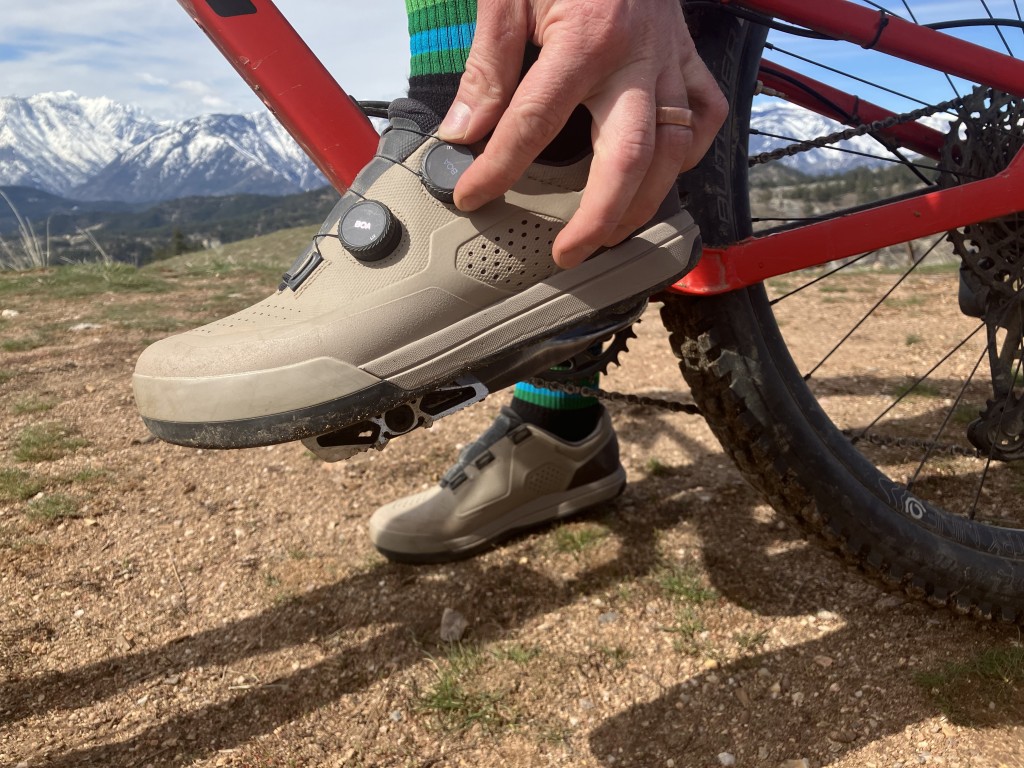
The Fox Union Boa offers dual-zone dials to tune the perfect fit for your downhill attack.
Credit: Pat Donahue
Best on a Tight Budget
Giro Gauge
Weight (per shoe): 452g (size 45) | Closure: Laces
REASONS TO BUY
Super walkable
Athletic styling
Good traction
Very inexpensive
REASONS TO AVOID
Below average sole stiffness
Minimal protection
The uniquely styled Giro Gauge packs in a ton of value. The sole is one of the most walkable we’ve ever tried, while the injected nylon shank provides enough stiffness for a sturdy pedaling platform and keeps the shoe from folding over the pedal. The outsole has an aggressive lug pattern that hikes well in low-traction situations, and the reinforced running shoe-esque upper breathes well while maintaining decent lateral stability on the bike. Over the course of our testing period, we learned that these shoes excel on casual to moderately technical trail and cross-country rides and in any situation that involves extended time off the bike. Whether you’re hanging out at the brewery post-ride or taking a bonus hike to bag a nearby peak, these shoes will keep you comfortable.
Despite how much we loved this shoe in testing, we should be clear that it does not provide the same level of performance as the top shoes in the test. While sturdy, the pedaling platform leaves something to be desired in high-torque, high-power situations. The lace enclosure is simple and easy but doesn’t offer the same on-the-fly adjustability as a Boa, ratchet, or velcro strap, and the mesh-heavy upper provides considerably less foot protection than a typical all-mountain shoe despite some reinforcement at the toe and heel. However, riders who value comfort, versatility, and savings over peak performance should definitely give this shoe a shot. But if the performance just doesn’t cut it, take a look at the Shimano ME7 instead.
Read more: Giro Gauge review
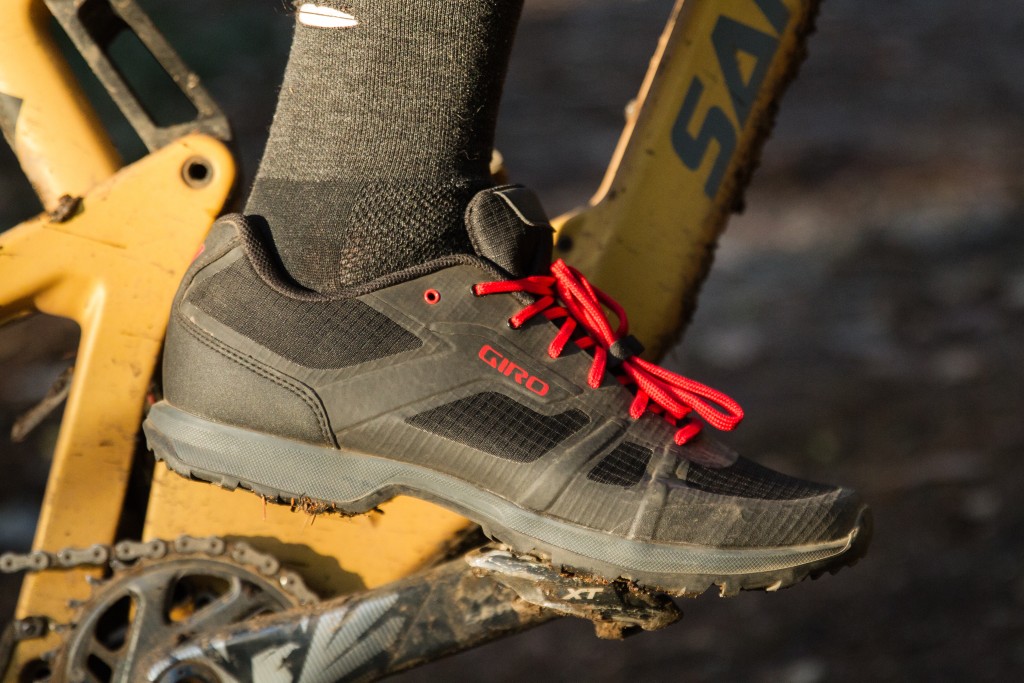
This affordable model may look like a hiking shoe, but it is a high-performance beast.
Credit: Zach Wick
Best for Foot Protection and Durability
Ride Concepts Tallac Clip
Weight (per shoe): 539g (size 11) | Closure: Laces and Velcro Strap
REASONS TO BUY
Well-padded
Burly, durable design
Comfortable
The Ride Concepts Tallac Clip was one of our favorite shoes in the test and is nearly the full package for a top-shelf all-mountain model. These shoes offer all-day comfort and solid power transfer for gravity-oriented shoes, but their biggest strength is their durable and protective construction. With a burly rubber outsole, TPU reinforcement at the toe and heel, abrasion-resistant reinforcement around the upper, and D30 insole padding putting these shoes on feels a little bit like donning a suit of armor. The substantial construction provides confidence in precarious terrain and ensures that your footwear isn’t hindering your riding ability. The Ride Concepts Transition provides a similar level of protection with a higher-coverage hightop design, but the Tallac Clip is slightly lighter, more breathable, and better off the bike, giving it the edge over its downhill-focused sibling.
If not for their higher weight, these would have been one of the best all-around shoes in our test. At 539 grams per shoe for our size-eleven test pair, these weigh around 100 grams more than the average all-mountain shoe in the test. Luckily, weight isn’t nearly as important as comfort, power transfer, and durability when it comes to all-mountain shoes, but the added heft did drag this model down our rankings slightly. Regardless, if you’re looking for an all-mountain shoe that will keep your feet safe and stand up to seasons of abuse, this is a great option. However, if you seek a lighter shoe that blends comfort, power, durability, and walkability, the Shimano ME7 is the one to get.
Read more: Ride Concepts Tallac Clip review
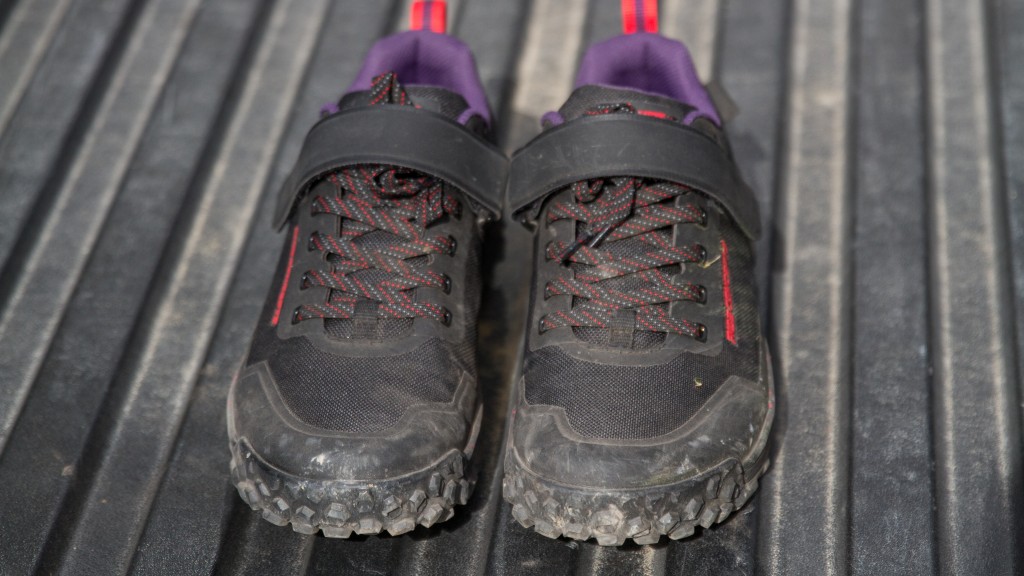
The Ride Concepts Tallac Clip utilizes a burly design that adds to durability and foot protection.
Credit: Zach Wick
Best for Adventure Riding
Pearl Izumi X-Alp Summit
Weight (per shoe): 435 (size 465) | Closure: BOA and velcro
REASONS TO BUY
Excellent off-the-bike feel
Breathable and quick-drying
Comfortable
Stiff enough
REASONS TO AVOID
Jack of all trades, master of none
Translates choppy trail surfaces to rider’s feet
If you’re the type whose idea of fun is to venture deep into the backcountry and explore some lesser-known terrain, the Pearl Izumi X-Alp Summit is a perfect choice. These shoes are an excellent option for those rides where you might experience a healthy amount of hike-a-bike, stream crossings, and climbing over giant downed trees. On the bike, the X-Alp Summit offer a reasonable amount of power transfer and stiffness. Off the bike, the lugged Vibram sole clings to uneven rocks and loose trails very well, while the moderate flex of the sole provides an extremely natural walking motion. These shoes are absent of excessive padding and breathe quite well. As a result, they dry out very quickly should they get saturated crossing a stream or navigating a muddy section of trail.
Versatility is the name of the game with the X-Alp Summit. This versatility is what makes them so adaptable in the backcountry and remote zones — they can do a bit of everything pretty well. As a result of this jack-of-all-trades, master-of-none attitude, they don’t stand out as particularly impressive in any on-the-bike categories. Folks looking to maximize their power transfer should look elsewhere. Riders who are looking for some robust protection and comfort on aggressive terrain should look towards the gravity-focused shoes in this review. We loved these shoes, but they are definitely geared toward adventure lovers rather than racers and those pushing their limits. If you need a comfortable mountain bike shoe with unmatched power transfer, the Giro Empire VR90 is a better buy.
Read more: Pearl Izumi X-Alp Summit review
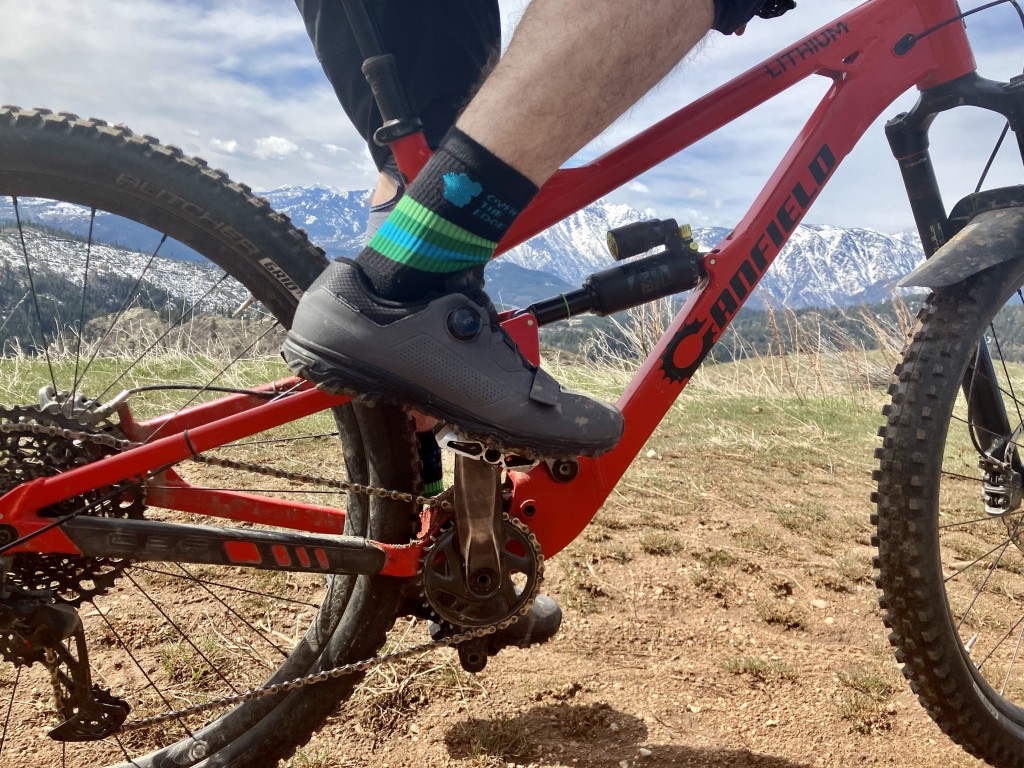
This model is a solid choice if you know that you’re going to be doing a fair amount of hiking with your bike shoes on.
Credit: Pat Donahue
Best Overall Flat Pedal Shoe
Five Ten Freerider Pro
Rubber Type: Stealth S1 | Sole Pattern: Full Dot
REASONS TO BUY
Grippy soles
Sturdy construction
Power transfer
REASONS TO AVOID
Expensive-ish
The Five Ten Freerider Pro impressed our testers across the board and rose to the top of a stacked test field of the best flat pedal shoes on the market. These versatile shoes have a grippy Stealth rubber sole with a full dot tread that has a locked-in and tenacious pedal grip. The soles are stiff enough to provide a solid transfer of power to the pedals yet flexible enough to allow for easy enough walking and a good pedal feel. The synthetic uppers are durable and robust without feeling bulky, with just enough protection for most styles of riding. The medium-volume fit is comfortable and should work for most riders. The Freerider Pro is a well-rounded performer that works as well for long trail rides as it does for lapping the bike park or goofing off at the pump track.
While we love the grippiness of the Freerider Pro, it may be a bit much for some riders. Subtle foot movements and repositions can be somewhat challenging compared to other shoes. Dirt jumpers and bike park riders may want to look elsewhere. They have adequate foot protection for most styles of riding, but they aren’t the most protective shoe. Overall, we think the Freerider Pro is an incredible shoe for any type of riding, but serious downhillers who spend their time riding lifts and smashing rocks may want to look into burlier options like the Ride Concepts Tallac Clip.
Read more: Five Ten Freerider Pro review
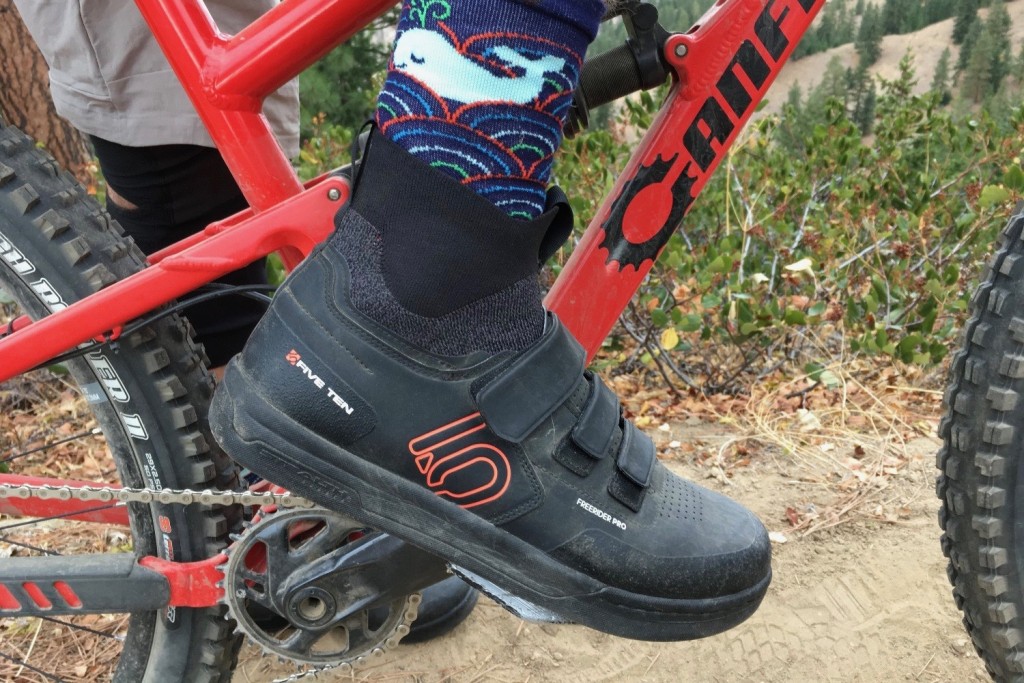
The Five Ten Freerider Pro’s sturdiness and pedal grip have made it our go-to flat pedal model for years.
Credit: Pat Donahue
Best Bang for Your Buck Flat Pedal Shoe
Ride Concepts Livewire
Rubber Type: Kinetics DST6.0 High Grip | Sole Pattern: Full Dot
REASONS TO BUY
Good grip
Quality construction
Low price
REASONS TO AVOID
Less grippy than some
Limited ventilation
Ride Concepts is a newcomer to the mountain bike shoe market, but this up-and-coming brand entered the party with a polished and quality line of shoes, including the affordable Livewire. Named for the most popular trail at the Northstar-at-Tahoe mountain bike park, the Livewire packs a lot of features and performance for the price. These well-made shoes are lightweight and have a comfortable fit with a quality insole and a shaped tongue. They provide foot protection with a reinforced toe and heel, and the soles fall about in the middle of the pack in terms of stiffness. Ride Concepts has also created a proprietary rubber compound for their full dot soles, and the Kinetics DST 6.0 High Grip rubber provides excellent grip both on and off the pedals.
If you value sole stiffness, it should be noted that the Livewire isn’t quite as stiff underfoot as some of the competition. Our testers loved the grip of the rubber as well, though people seeking the absolute tackiest soles may want to look into other models. That said, the Livewire is a great new shoe at a reasonable price that truly impressed our testers. Still, you can’t beat the tacky grip and the stiff sole of the Pearl Izumi X-Alp Summit when traction and walkability matter most.
Read more: Ride Concepts Livewire review
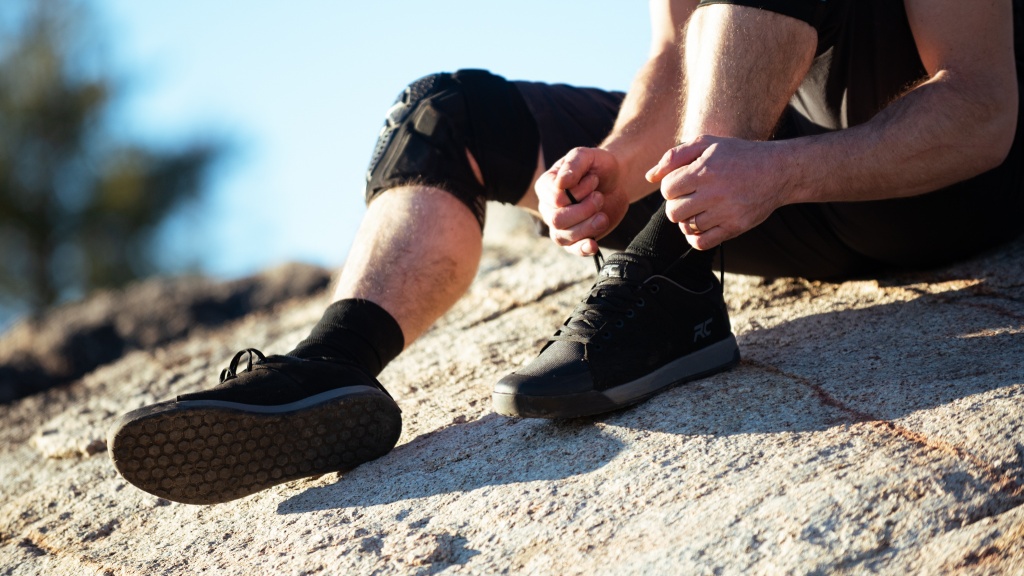
If you want an affordable, grippy, and sturdy flat pedal model, look no further than the Ride Concepts Livewire.
Credit: Laura Casner
Compare Products
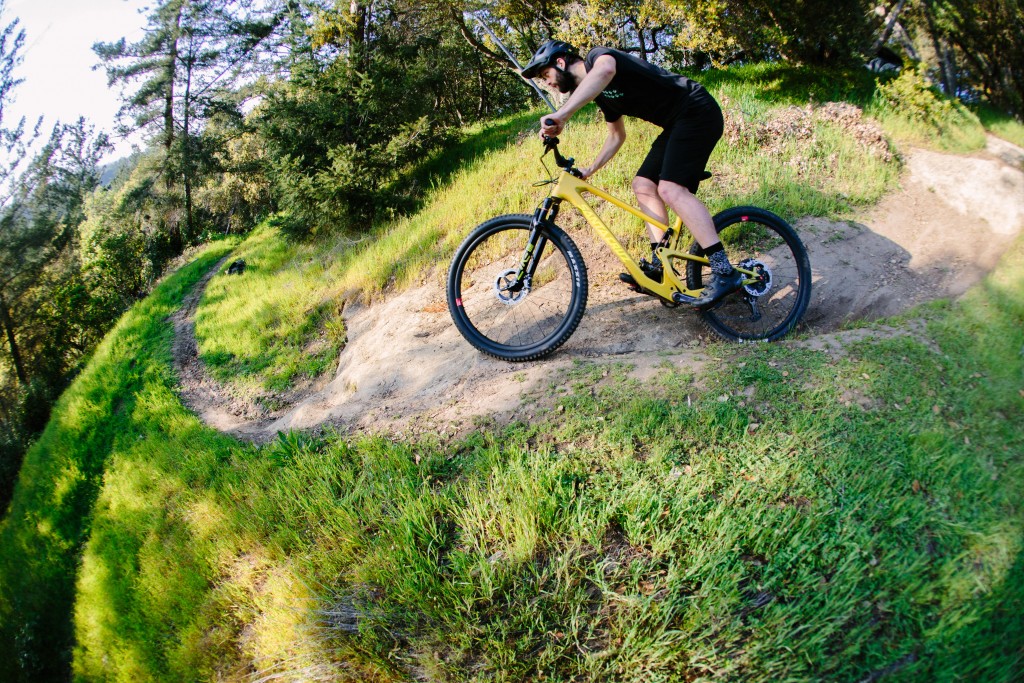
Our testing has taken us from mountain peaks to the coast and everything in between.
Credit: Ian Stowe
How We Test Mountain Bike Shoes
Our team of obsessive riders and self-proclaimed bike nerds stay on top of the latest trends and models in mountain bike footwear. We spent weeks researching and discussing the newest and best shoes on the market before selecting our test models. From the California foothills to the desert southwest, XC pedal fests to shuttle laps, each model was ridden for hundreds of miles of climbing and descending, and we even did a fair bit of hiking. Each shoe was ridden on its own in addition to numerous back-to-back switch-outs for a head-to-head comparison. When testing concluded, we rated each model’s power transfer, comfort, traction, walkability, weight, and durability to provide a concise overall score. Check out our full testing breakdown here.
We break down our testing into five key metrics:
- Power Transfer (20% of overall score weighting)
- Traction and Walkability (25% weighting)
- Durability (15% weighting)
Why Trust GearLab
Jeremy Benson, Zach Wick, and Dillon Osleger made up our primary review team for this project. Between the three of them, they have over fifty years of riding experience, and their diverse backgrounds in cycling bring a variety of strengths to our review process.
Benson has been mountain biking for over 25 years, the last 20 of which have been spent enjoying the trails around his home base of Lake Tahoe, CA. When he isn’t busy testing all manner of mountain bike gear for reviews, you can find him on the racecourse racking up impressive results. In addition to his gear review work, Benson is the author of Mountain Bike Tahoe, a guidebook published by Mountaineers Books in 2017.
Wick has been riding and racing bikes of all kinds for the past 17 years and has experience racing at an elite level in virtually every discipline of the sport. He’s spent years working in a product development test lab in the mountain bike industry, where he’s developed a keen sense of what makes good bike gear tick. These days he can be found riding his local trails in Logan, Utah, and jumping into races when the mood strikes.
Dillon is a versatile rider who competes in the Pro class in Enduro, XC, and gravel racing. He recently earned a Master’s degree in Earth Science from the University of California Santa Barbara. When Dillon isn’t testing gear or training for the next race, he works for a trail stewardship organization in the Santa Barbara, CA area.
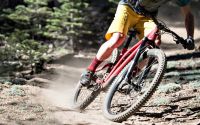
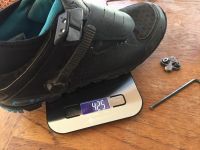

How to Choose Mountain Bike Shoes
Below we summarize our detailed buying advice by answering some of the key questions when buying MTB shoes.
What’s Your Riding Style?
Bike shoes are designed to excel in various categories, whether cross-country riding, trail riding, or downhill riding. Finding a shoe that lines up with your preferred riding style ensures you will get the most out of your shoes. Features such as toe and heel protection or sole stiffness will differ substantially on a cross-country shoe vs a gravity-oriented shoe, even from the same brand. Before diving into shoe specifics, it’s a good idea to think about your typical riding style and begin your search for shoes within that category.
Do Closure Systems Matter?
Bike shoes come in several different closure systems to keep your feet secured and snug. Newer systems such as Boa dials have become increasingly popular due to their on-the-fly adjustment and non-intrusive design. Laces are a tried and true option that work well—and they’re more budget-friendly-but you have to remember to keep them secured and tucked away. Velcro is a nice in-between for ease of use and quick tightening but doesn’t offer the same level of tightness and security as laces or Boa systems. Closure systems mostly come down to personal preference, but if you find yourself making adjustments throughout the day on longer rides or just want to spend less time tying your shoes, it is worth considering a combination of Boa or velcro-style closures.
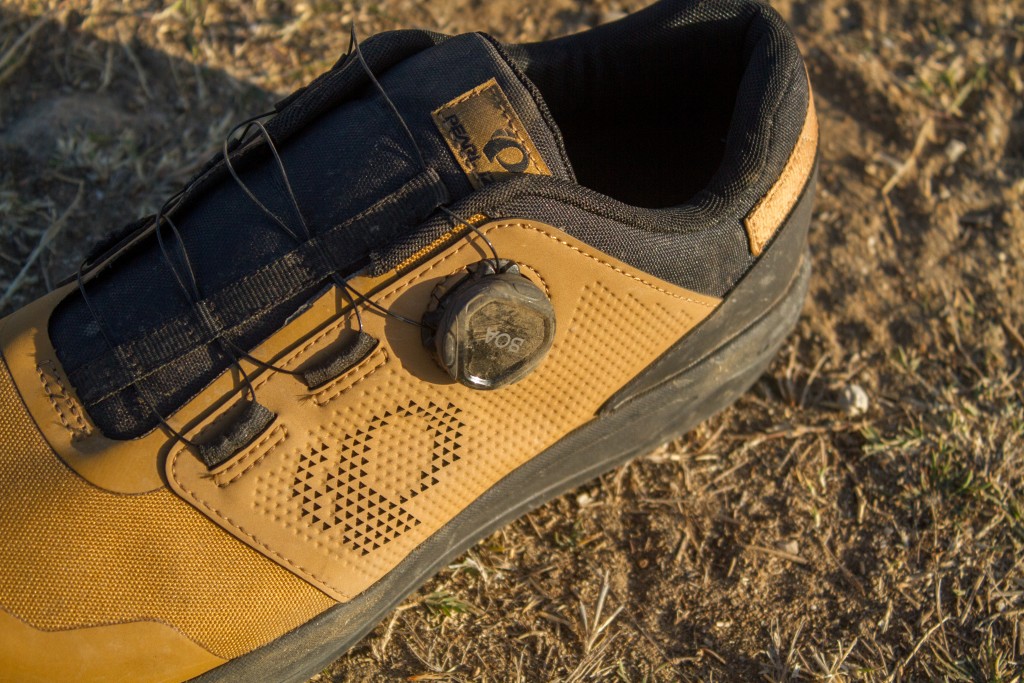
Closure systems such as Boa make adjustments easier and more precise.
Credit: Zach Wick
Should You Consider Grip?
While maybe not the first consideration for most folks when buying clipless shoes, flat riders depend on proper grip and traction to keep their feet on the pedals. Additionally, clipless and flat riders who might spend time off their bikes hiking and walking on slippery, uneven terrain will appreciate a shoe with solid traction when off the saddle. If you have plans to hike a bike or spend a lot of time in the backcountry, you may want to consider the tread on your next pair of shoes.
Is Durability a Concern?
Mountain bike shoes do not come cheap, so it’s a reasonable concern to consider the longevity of your shoes. Features such as the rubber compound material, the upper material, and the closure type can all impact durability. Beefier shoe designs tend to hold up better to abuse than lightweight designs, and the areas you ride in also play a factor. Someone who spends their days riding down rock gardens and technical downhill will have different wear and tear from someone riding flow and logging roads.
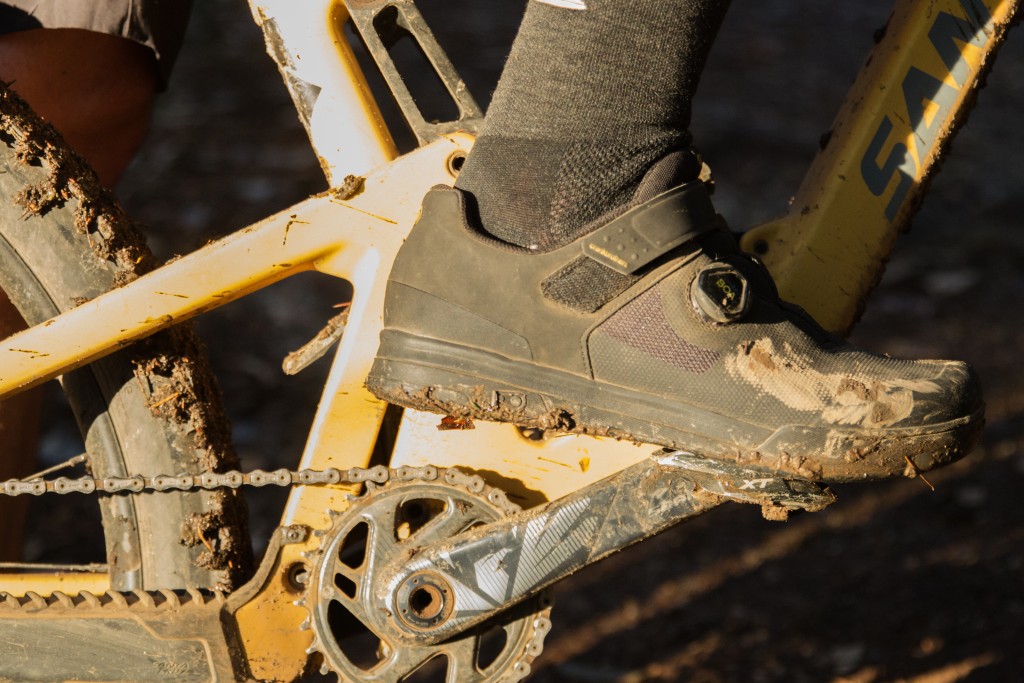
We tested the durability of each shoe through demanding terrain and lots of mud.
Credit: Zach Wick
Analysis and Test Results
We tested these shoes on a variety of terrain and trail types before evaluating them based on our metrics and providing a score for each. We included shoes that cover the full range of riding disciplines and styles to ensure a well-rounded comparison. In order to get a true idea of the best shoes on the market, we put a large cross-section of XC race shoes up against Enduro/All-mountain and gravity-oriented shoes.
Value
At GearLab, we don’t rate the products we test based on their price. That said, everyone can appreciate a good value. Like many things, the price of a mountain bike shoe often corresponds to its overall quality and performance. Yes, some of the highest-performing shoes we tested are also the most expensive, but this isn’t always the case. Some of the more reasonably priced competitors, like the Scott MTB Team Boa, Specialized 2FO Roost Clip, and Giro Gauge, scored well across our metrics despite a lower price tag than much of the competition.
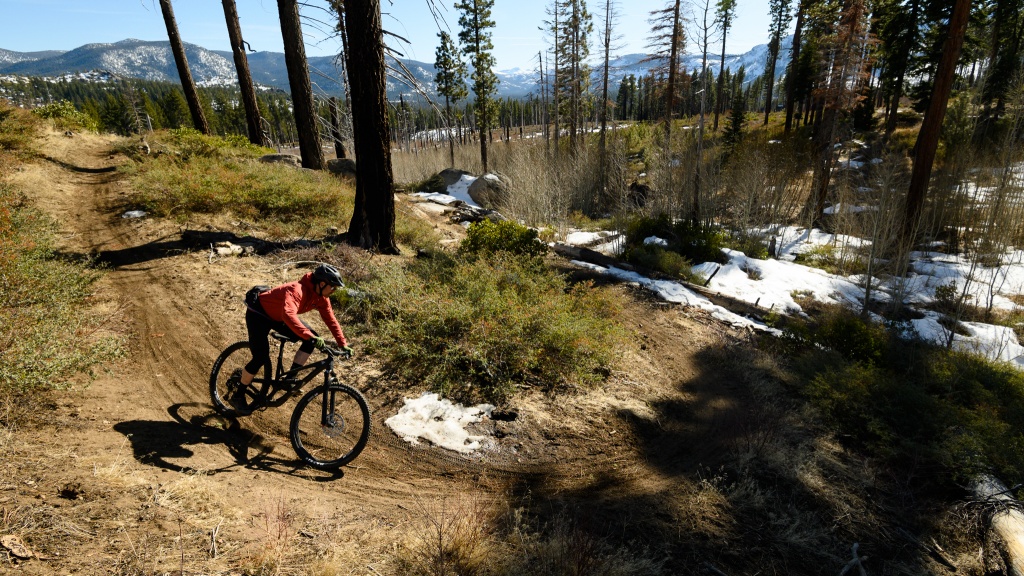
Our testers spend lots of time out in the field while testing mountain bike shoes.
Credit: Laura Casner
These days, clipless pedals and mountain bike shoes are used in just about every sub-discipline of the sport: gravel, cyclocross, cross country, enduro, trail riding, and downhill. Your preferred riding discipline is one of many important factors that go into your mountain bike shoe purchase decision. Still, during testing, we found that the best shoes these days can be incredibly versatile and effectively span multiple disciplines.
Power Transfer
Your shoes comprise a key interface between your legs and your pedals and are one of only three contact points between your body and the bike. This is a critical interaction between rider and machine, and sole stiffness dictates how efficiently shoes transfer your energy and power directly into your drivetrain. A stiff sole and solid shoe-to-pedal interface create a sturdy platform for a rider to translate their leg power directly into forward motion. In contrast, a flimsy sole saps power by flexing and may cause foot fatigue. A benefit of clipless mountain bike shoes is that they position your feet in the optimal spot during the pedal stroke, which helps increase your pedaling efficiency over flat pedals/shoes.
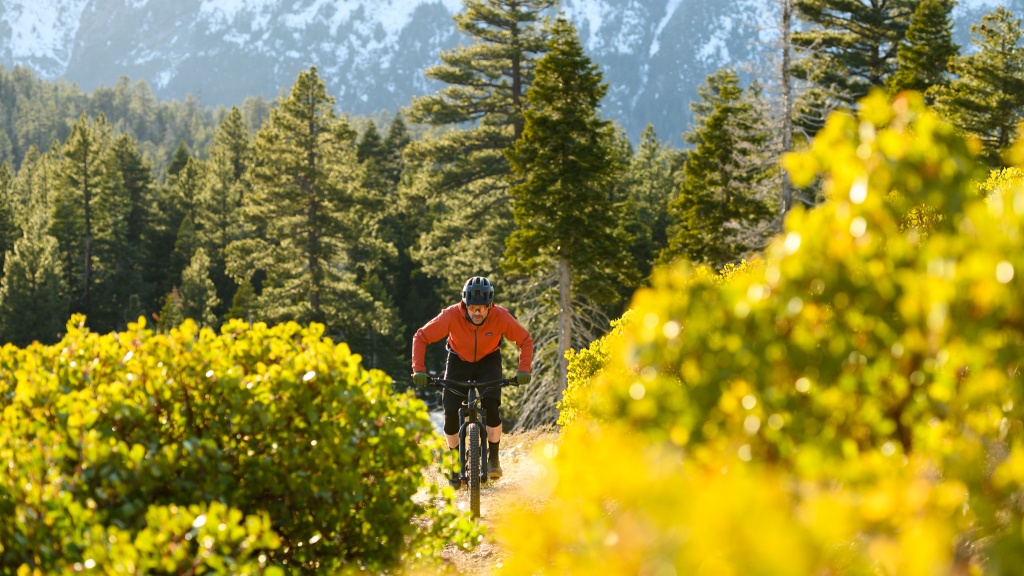
Our favorite shoes have stiff soles that transfer the majority of your effort straight into your pedals. Whether you’re a trail rider or a racer, good power transfer is a plus.
Credit: Laura Casner
Carbon fiber often creates the stiffest and lightest sole platform and is generally found in high-end cross-country race mountain bike shoes. More budget-friendly XC shoes and the vast majority of trail and enduro shoes use nylon plastic composite soles or inserts to provide rigidity. While it’s not quite as snappy as carbon, nylon is the next best thing and does the job admirably. Shoes without a solid sole or insert tend to collapse over the pedal under heavy pedaling forces, significantly reducing the amount of power that is translated into the pedals.
We tested the power transfer of each shoe first by using the simple flex-in-the-hands test and then by feel and observation over hundreds of miles of riding. While they can be subtle, the differences in stiffness are noticeable, especially when switching between shoes frequently in back-to-back testing. Our stiffest shoe was the Giro Empire VR90, which uses an Easton EC90 carbon sole that is impressively stiff and offers excellent power transfer. The Specialized Recon 3.0 is a close second with its stiff-but-walkable carbon STRIDE sole. Sidi is also known for its stiff-soled XC shoes, and the Trace 2 has some of the best power transfer in the test as well.
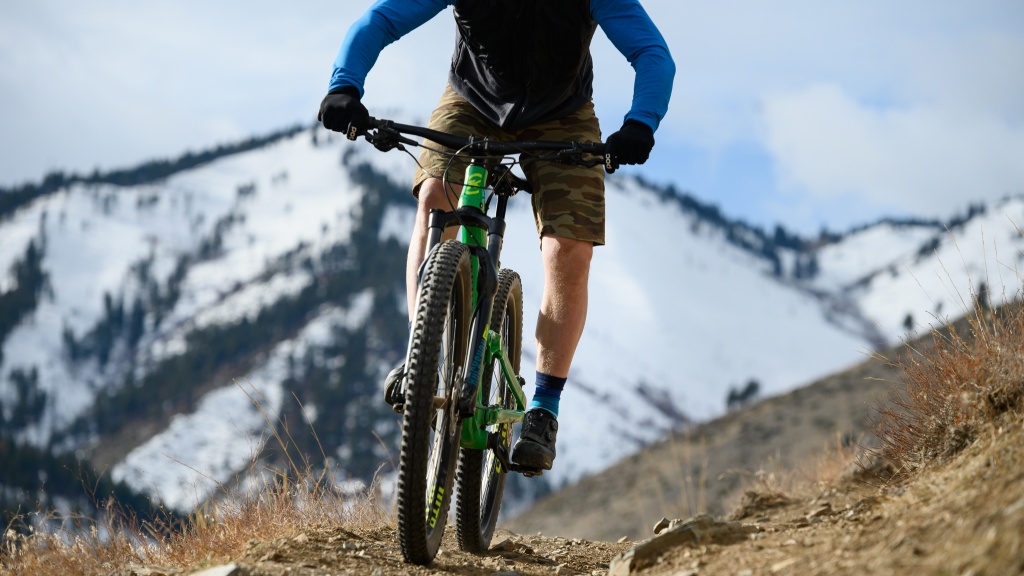
Your shoes are one of your contact points with the bike. The best shoes are like an extension of your body.
Credit: Laura Casner
These days, the lines are being blurred between trail/all-mountain shoes and their XC-oriented counterparts. Shoes are being developed that can provide excellent power transfer while still offering some flex through the toe for comfortable off-the-bike walkability. Shoes like the Shimano ME7, Pearl Izumi X-Alp Launch, Five Ten Kestrel Pro Boa, and the Crankbrothers Mallet Boa are good examples of this. They feature a stiff shank from the heel to the ball of the foot and a bit of flex from the ball of the foot forward. Combine that design with a grippy rubber sole, and you can lay down the power on the bike while maintaining a semi-normal gait off the bike.
Among gravity-oriented shoes, the Fox Union BOA and FiveTen Hellcat Pro both scored well in this metric. They offer plenty of power when it’s time to get on the pedals and sprint. In addition, this sweet spot of stiffness keeps your feet from receiving the chattery and bumpy forces from the trail.
Comfort
When you’re spending multiple hours in the saddle or chattering down rough trails, comfort can make or break your day. The more comfortable your shoe is, the more comfortable and relaxed you are, and the better you can ride. Discomfort can be a huge distraction when a few millimeters one way or the other can mean the difference between nailing your line or ending up in a heap. When you’re riding, the only thing you should be focusing on is the trail ahead of you. How do we measure comfort? When a shoe inspires confidence right out of the box and becomes an extension of your body, we think that’s usually a good thing. Ideally, the only thing you should notice about your shoes when you’re riding is how little you notice them.
To rate comfort, we consider the material of the uppers, types of closures, distribution of tension over the foot, footbeds, ventilation, and protection of the feet. Not surprisingly, some of the most comfortable shoes in our test are designed for gravity and all-mountain riding with thicker, more protective uppers and cushioning. Shoes like the Five Ten Kestral Pro Boa and the Ride Concepts Tallac Clip may be heavier than the competition, but they are very comfortable. These beefy shoes also give the rider extra peace of mind when riding technical terrain.
One of our favorite shoes is the Giro Empire VR90. They fit quite tight out of the box and take a few rides to break in, but the synthetic uppers eventually conform to the foot for a supremely comfy fit. The simple, lightweight lace-up design tightens uniformly around the foot and rarely requires adjustment during long rides. Giro also makes them in a regular fit for people with narrower or average-width feet, as well as a high-volume (HV) fit to accommodate wider feet.
Other highly rated products for comfort include the Shimano ME7, Crankbrothers Mallet Boa, Specialized Rime 2.0, and the Specialized 2FO Roost Clip, all of which feature comfortable insoles, quality closures, and an all-around great fit. The Pearl Izumi X-Alp Summit is a comfortable and versatile shoe that is a viable option for riders with slightly wider feet.
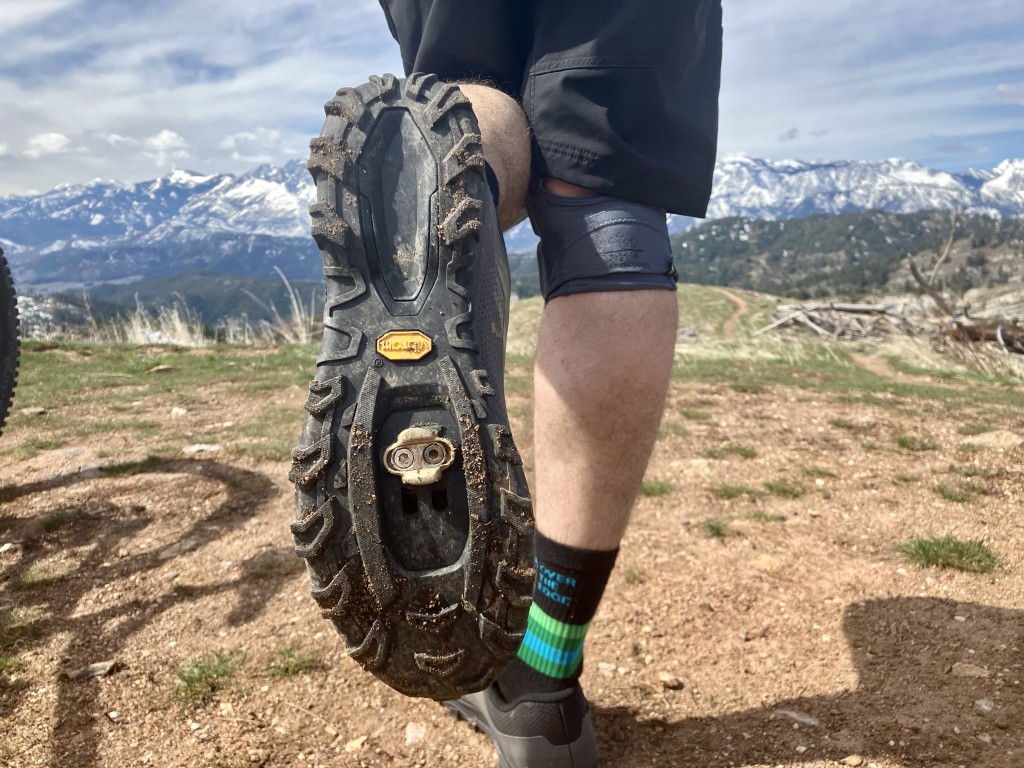
The Vibram sole, aggressive tread, and moderate flex make the Pearl Izumi X-Alp Summit outstanding for adventure riding where you might be off the bike hiking a fair bit.
Traction and Walkability
For many years, dismounting your bike and walking on rocks or other hard surfaces in clipless mountain bike shoes was a treacherous undertaking. Most models felt more like tap-dancing shoes than something made for rugged terrain, and the likelihood of getting injured trying to walk over obstacles was probably higher than if you’d just tried to ride them in the first place.
Over the past several years, mountain bike shoe manufacturers have started making shoes that perform well not only on the bike but also during those inevitable dismounts. This blend of on and off-the-bike performance is most evident in the new breed of enduro, trail, and all-mountain-oriented shoes. Many modern cross-country mountain bike shoes are also improving their outsole designs while still offering unwavering stiffness and pedaling performance.
To test traction and walkability, we hiked our bikes in each pair of shoes on a variety of surfaces, rocks, logs, dirt, and mud to see how well each one performs. This portion of the testing involved gratuitous walkarounds and finally taking the time to walk up to that vista point that we always used to ride past.
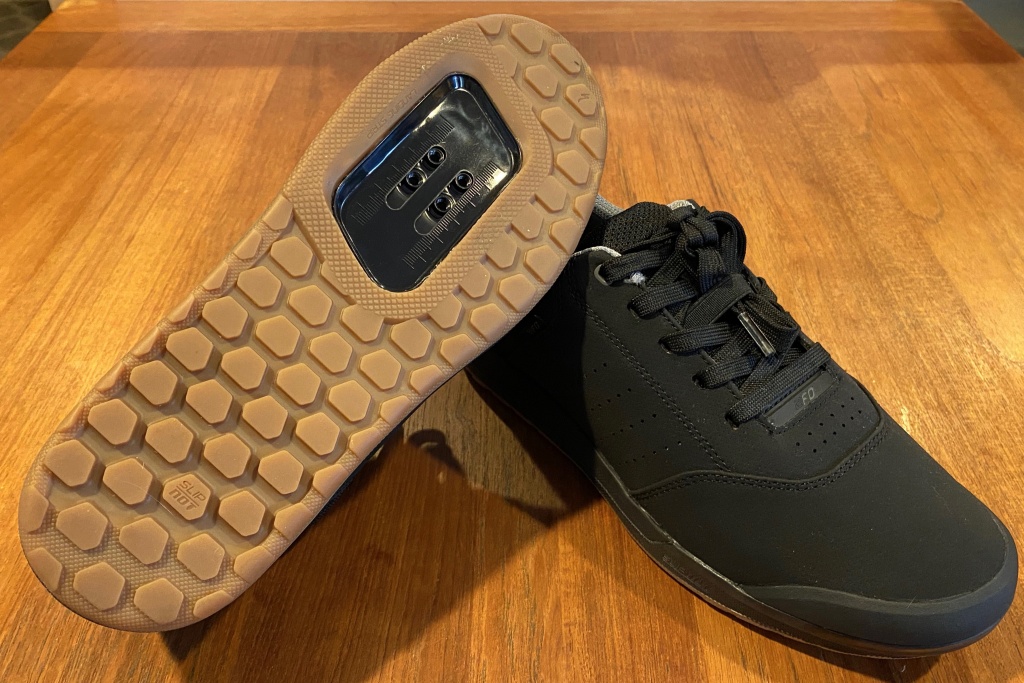
Full coverage rubber soles are becoming the norm on modern trail riding shoes, making walking or hiking in them much easier.
Credit: Jeremy Benson
A shoe’s outsole material and tread design are the most significant factors in the traction it provides. Some models, such as the Ride Concepts Transition and Pearl Izumi X-Alp Launch, provide great grip on dry surfaces, but the shallow tread design can be slippery in muddy and wet conditions. We’ve found the ideal shoes to have a semi-aggressive but more open tread design that doesn’t hold onto mud or debris that is made from a grippy rubber compound for traction on hard surfaces. The Shimano ME7 fits that bill, and it is one of the best-performing shoes off the bike, an impressive feat considering its great power transfer.
These days, mountain bike-specific shoes are also being designed to offer flex in the toe, from the ball of the foot forward, to enhance walkability without sacrificing underfoot stiffness or power transfer. More often than not, the shoes with the highest scores in our traction and walkability metric are of the trail/enduro variety and weigh slightly more than their XC counterparts. One of our top-rated shoes for traction and walkability are the Peal Izunu X-Alp Summit and the Specialized Rime 2.0. They both utilize widely-spaced, prominent rubber lugs and stiff soles that only flex through the toe and blur the lines between hiking and riding shoes and provide a lovely combination of power transfer and traction. The Pearl Izumi X-Ap Summit utilizes an ultra-tacky Vibram rubber sole for an unrivaled grip.
Other shoes with great walkability, traction, and power transfer include the Ride Concepts Tallac Clip, the Specialized 2FO Roost Clip, and the Crankbrothers Mallet Boa.
Depending on your preferred riding style, you might like a shoe that leans a little bit further toward the walkability side of the spectrum. Two pairs of shoes that offer great walkability and a more casual style with a minor sacrifice in pedaling efficiency are the Five Ten Trailcross Clip-In and the Giro Gauge. Both of these models feel right at home on foot and make good options for people who value off-the-bike time. We wouldn’t recommend either of these shoes for racing applications, but they’re more than serviceable for trail riding.
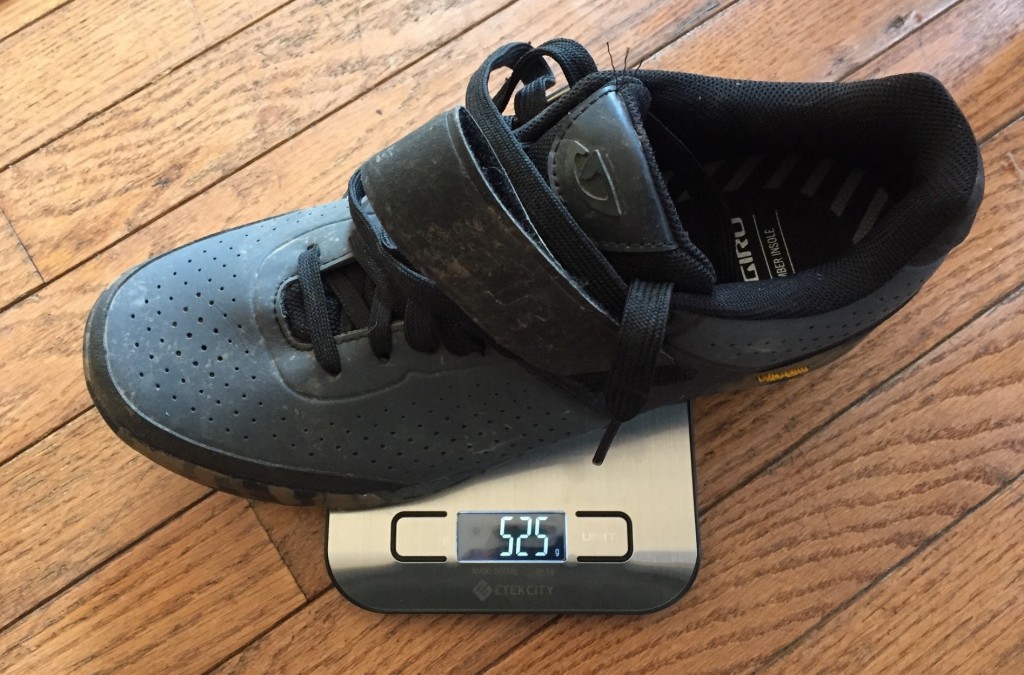
Yup, we weigh the shoes we test. The Giro Chamber II are some of the heaviest.
Credit: Jeremy Benson
Weight
Let’s face it, all other things being equal, lighter is better when you’re on the trail. The less weight we have to haul around, the faster we can travel, and the longer we can ride before fatigue starts to set in. That said, we’ve placed less emphasis on weight than on other criteria, such as comfort, because the relative differences in weight aren’t huge. Factors other than weight are likely to make a bigger difference in your overall satisfaction with a pair of riding shoes, but it is certainly worthy of consideration.
A couple of the lightest shoes we tested are the Giro Empire VR90 at 776 grams and the Specialized 2FO Roost Clip at 750 grams for the pair. The Ride Concepts Transition sits at the other end of the spectrum, weighing in at 1,094 grams, almost a pound heavier than the lightest shoes we tested, a trade-off for their enhanced foot protection and durability. The majority of the other shoes in the test fall somewhere in between, with shoes like the Specialized Rime 2.0 and the Shimano ME7 posting very respectable weights given their designs.
Some of our favorite shoes fit somewhere in the middle of the spectrum as it pertains to weight. Our favorite gravity shoe, the Fox Union BOA, is reasonably light among burly shoes coming in at 916 grams per pair (size 11).
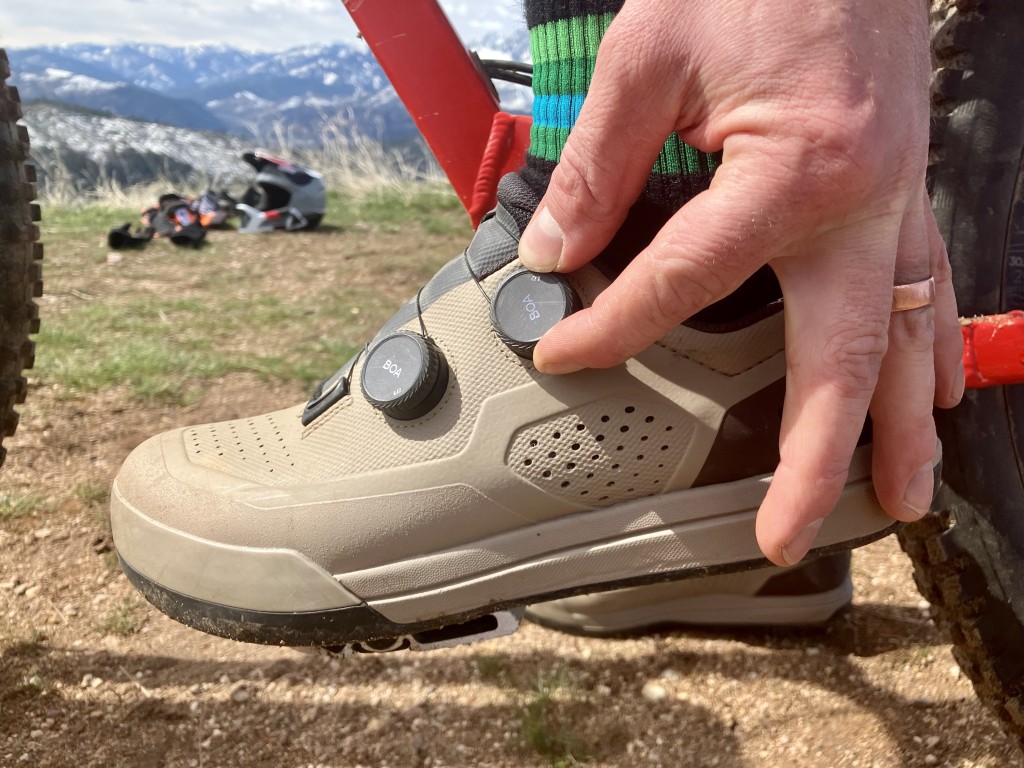
BOA systems have become significantly more reliable in recent years.
Durability
Mountain bike shoes are an investment. The longer they last, the greater your return is on that investment. The shoes in our test range widely in price, and when you spend big money on anything, you hope to get at least a couple of seasons of use out of them. When we get a new pair of shoes, we hope that they’ll last at least a season or two of hard riding before giving up the ghost. There are several aspects to the durability of a given pair of mountain bike shoes, and we considered several factors during the assessment of our test shoes, including the quality of craftsmanship, the abrasion resistance of the uppers, wear or damage to the closures, and wear of the outsole material.
During testing, we went out of our way to put extra abuse on these shoes, scuffing the uppers on rocks, intentionally stumbling around while walking, tightening and loosening the closures more than was necessary, and inadvisably pedaling through rock gardens all to see how they stood up to use over time.
The outsole rubber compounds and tread designs used by the different shoe manufacturers all wear differently. As we expected, we found softer rubber compounds to wear more quickly, while the firmer Vibram Megagrip rubber of the Giro Chamber II and the Rubber Kinetics sole of the Ride Concepts Transition each looked barely used even after months of use. Lugged soles, like those found on the Scott MTB Team Boa, may also tend to wear down somewhat quickly if you spend lots of time hiking on rocks. Every model we tested also uses some synthetic material for their uppers. The abrasion and wear resistance of each varies between the different models of shoes, and many have additional abrasion-resistant materials strategically placed around the uppers to prevent damage.
A shoe’s closure system is also an important consideration in their overall durability. There are many different closure styles on the market designed to provide comfort and retention of the shoes in various ways. Shoelaces are used on many models, including the Giro Empire VR90, trail shoes like the Specialized 2FO Roost Clip, and gravity-oriented models like the Five Ten Hellcat Pro. Laces are simple, lightweight, efficient, and easily and inexpensively replaced. The only drawback is the lack of on-the-fly tension adjustment.
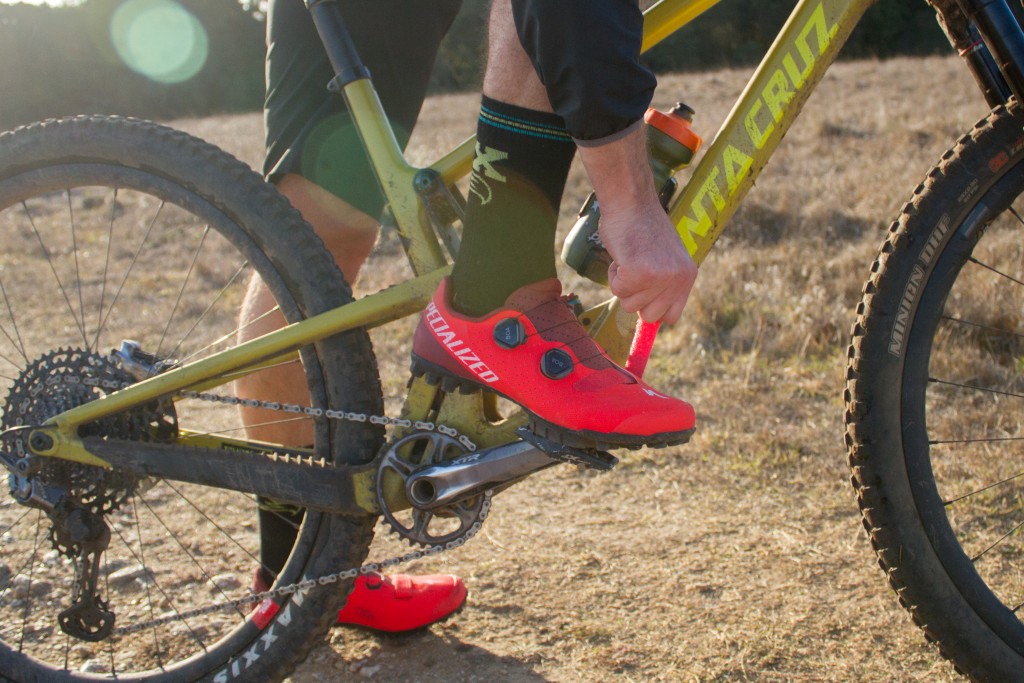
Boa dials and velcro straps allow for quick on-trail adjustments, but they can be prone to wear and damage.
Credit: Zach Wick
Ratcheting straps have been a popular closure system for some time, as they are relatively inexpensive. They work quite well, although they can be prone to damage if positioned vulnerably on the side of the shoe. Fortunately, most ratchets and straps are fully replaceable in case of damage. Velcro, or hook and loop, straps are a simple, lightweight, and inexpensive system that has been used on mountain bike shoes for years. Unfortunately, Velcro is the retention system that is quickest to break down, though it usually takes a few years. Sometimes a shoe will outlast the Velcro closure.
Dials and cables like Boa or Sidi’s Tecno 3 are a more modern style of lightweight closure that pulls tension evenly from both sides and offers quick on-the-fly adjustment. Closures like these can occasionally fail or break from impact but are typically far longer lasting than Velcro. These dial and cable closure systems are often fully replaceable and sometimes covered under warranty.
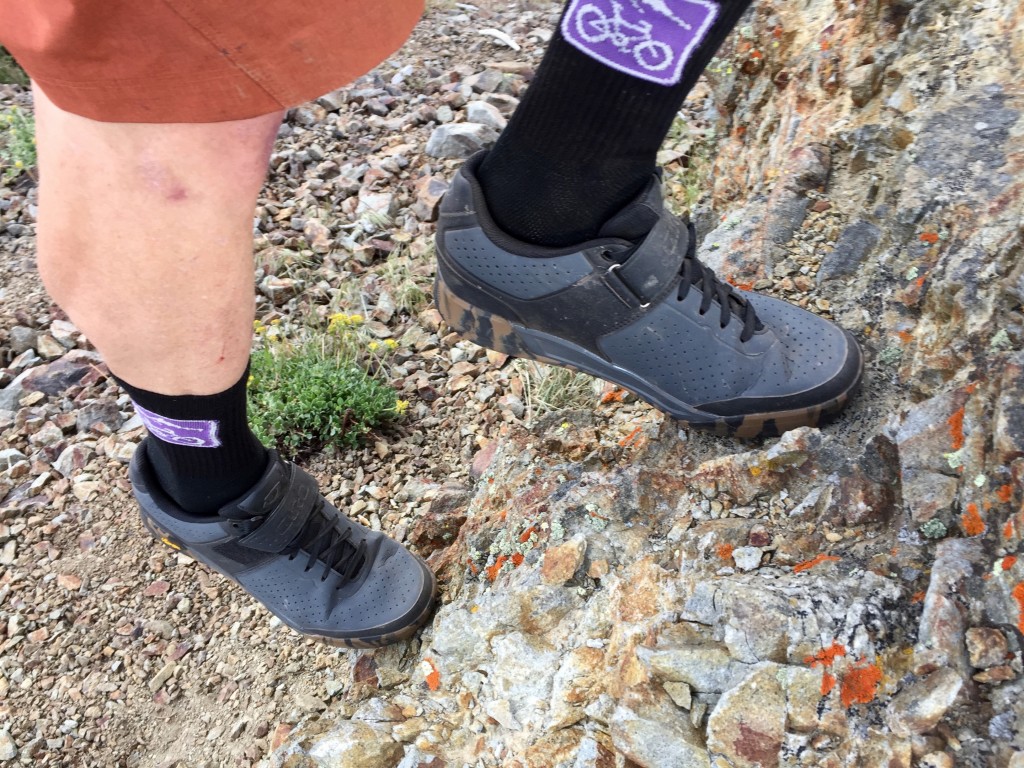
Sharp rocks are no match for the durable and well made Chamber II.
Credit: Jeremy Benson
It’s not surprising that the heavier shoes in our test were also some of the highest-rated shoes for durability. The Ride Concepts Transition and Tallac Clip are burly models with full coverage rubber outsoles and protective uppers. The Giro Chamber II and Five Ten Hellcat Pro also scored highly in this metric due to their similarly hefty construction. We were astonished, however, to find that the ultra-lightweight Giro Empire VR90 was also very durable. It got high marks for its incredibly abrasion-resistant uppers, simple closures, and durable Vibram rubber outsole.
Conclusion
There’s a ton to consider when choosing a pair of clipless mountain bike shoes. Depending on your riding style, there are myriad viable options out there. Your choice should depend first and foremost on the type of riding you enjoy—whether it be XC, trail/all-mountain, enduro, or downhill—and everything beyond that should be based on what you value out on the trail. Whether you’re looking for protection, speed, comfort, or control, there’s something out there for you. We put in the miles to make sure that you’re as informed as possible before jumping into a pricey new pair of kicks. Hopefully, our in-depth review helped you parse out the best all-around shoe for you.
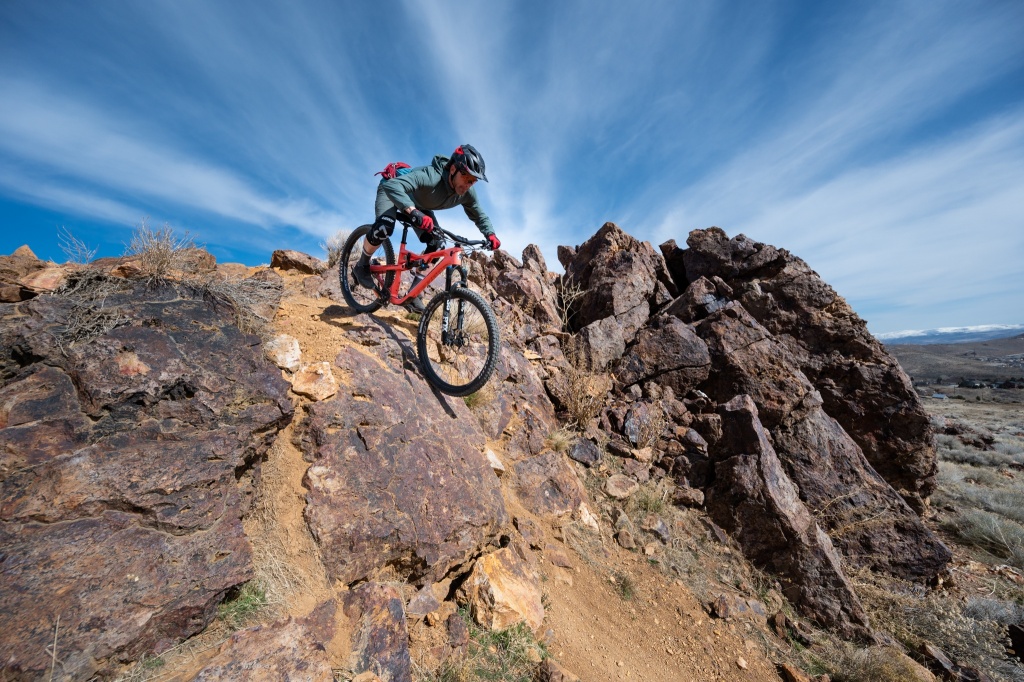
Considering dropping in on a new pair of mountain bike shoes? There are loads of great options on the market to meet the varying needs and budgets of every rider.
Credit: Laura Casner






:max_bytes(150000):strip_icc()/cascade-mountains-range-USMNTNS0720-db9bdf21ee2e47b1868232c551c01006.jpg)

